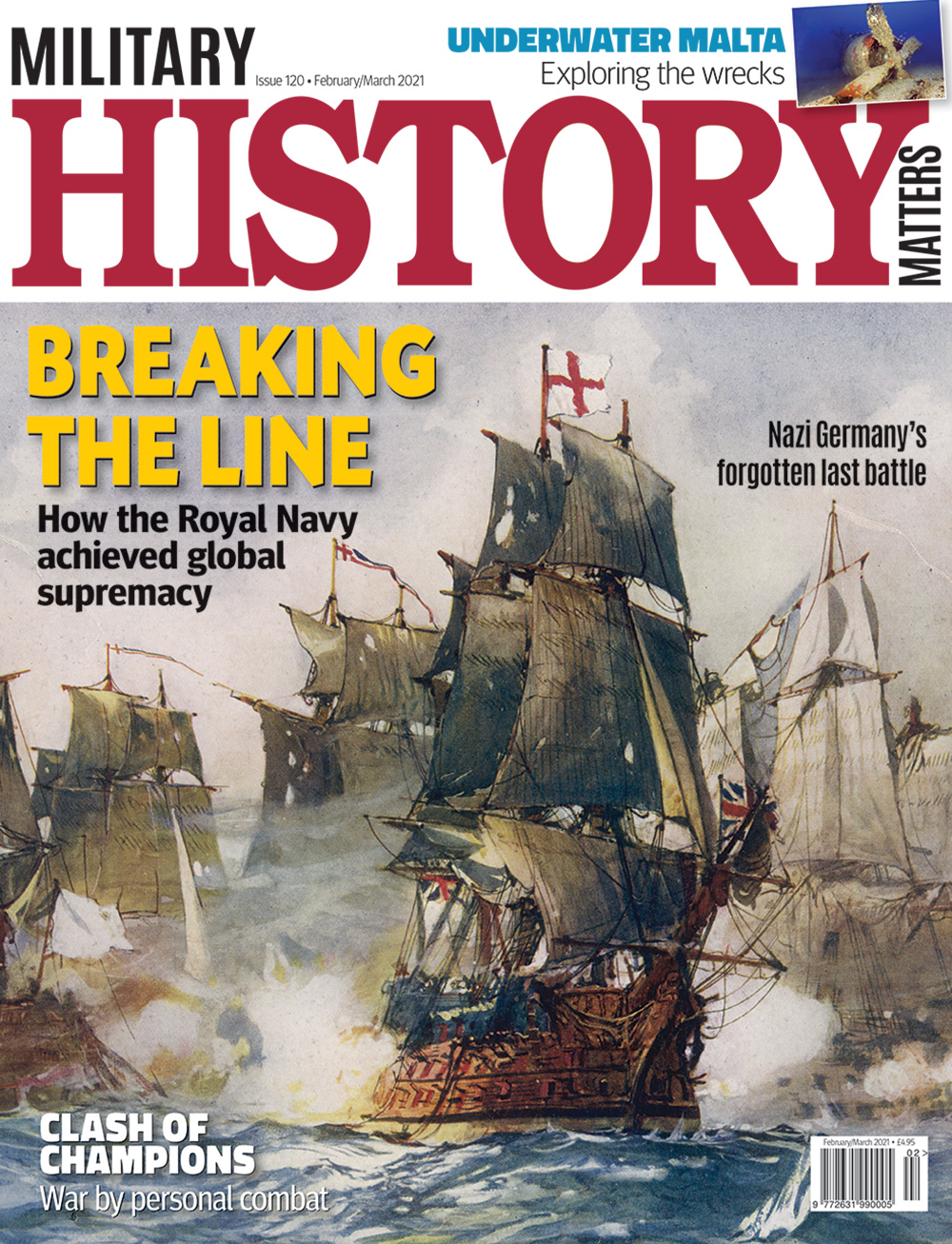The British Empire could not have been built without seapower. And British maritime supremacy could not have been achieved without a revolution in naval tactics in the second half of the 18th century.
In the second of our short series on leading British admirals, we focus on Rodney and Howe. Both ‘broke the line’ – at the Battle of the Saintes (1782) and on the Glorious First of June (1794) respectively – but each victory was limited. We explore how the technology and tactics in these battles pointed the way to Trafalgar.
Back on land, Magnus Olofsson argues that Sweden’s greatest military defeat was not Poltava in 1709, as is generally assumed, but Kircholm in 1605, when the army of King Charles IX was annihilated by Polish-Lithuanian cavalry. Ashley and Stephen Cooper, meantime, take a long look – from antiquity to the Renaissance – at the hallowed idea of ‘combat by champions’.
Modern warfare is explored in Stephen Roberts’ article on Jan Christian Smuts, the South African soldier and statesmen who played leading roles in the Boer War and in both World Wars, and we round off with Eric Lee’s account of the Battle of Texel in spring 1945, the last stand of the Nazis in Europe.

